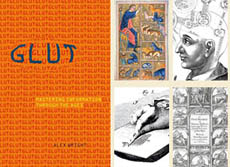Union card?
October 2, 2003
Victor wonders:
Let me second that.
I would argue that this model is already taking shape, albeit in a self-organizing sort of way; more and more of the UE practitioners I know seem to be morphing into perpetual free agents, moving fluidly between employers and projects, as team sizes ramp up and down in response to project demands.
Free agency should be a good thing for everyone: it's a classic market efficiency; and as contractors circulate between companies, they promote knowledge-sharing and help spread best practices.
By contrast, the departmental "Bureau of User Experience" model - which I understand pretty well, having worked in that mode for some 7 years - seems inherently inefficient, prone to reductionist management and susceptible to all kinds of organizational dysfunction.
The question is whether UE free agent types would benefit from some kind of guild-type organization - along the lines of Actors Equity or the Screenwriters Guild? I'm inherently skeptical about these kinds of things, but could possibly see the utility of an organization that provided things like a referral network, group health insurance, retirement planning, and other types of infrastructural support.
But it seems like most of the efforts at forming new organizations - like AIFIA, or the nascent Interaction Designers group- are more focused on supporting disciplinary knowledge-sharing; an institutional approach to learning that strikes me as increasingly anachronistic in an age of networks.
File under: User Experience
_____________________« The Six Paramitas: Part 3 | Facts v. fiction »
GLUT:
Mastering Information Through the Ages
New Paperback Edition
“A penetrating and highly entertaining meditation on the information age and its historical roots.”
—Los Angeles Times
